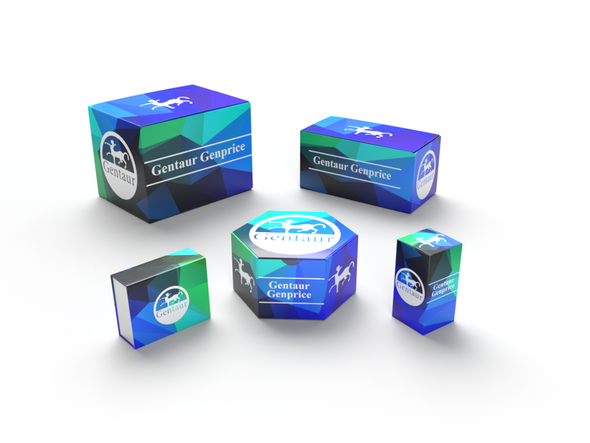740
Human Serpin B9 (SERPINB9) ELISA Kit | AE20011HU
- SKU:
- 740-AE20011HU
- Availability:
- Usually ships in 5 working days
Description
Human Serpin B9 (SERPINB9) ELISA Kit | AE20011HU | Gentaur UK, US & Europe Distribution
Species Reactivity: Human (Homo sapiens)
Abbreviation: SERPINB9
Alternative Name: CAP-3; CAP3; PI9; protease inhibitor 9 (ovalbumin type) |serine (or cysteine) proteinase inhibitor; clade B (ovalbumin) ; member 9|serpin peptidase inhibitor; clade B; member 9
Application: ELISA
Range: 0.156-10 ng/mL
Sensitivity: 0.058 ng/mL
Intra-Assay: ≤4.2%
Inter-Assay: ≤7.9%
Recovery: 0, 96
Sample Type: Serum, Plasma, Other biological fluids
Detection Method: Sandwich
Analysis Method : Quantitive
Test Principale: This assay employs a two-site sandwich ELISA to quantitate SERPINB9 in samples. An antibody specific for SERPINB9 has been pre-coated onto a microplate. Standards and samples are pipetted into the wells and anySERPINB9 present is bound by the immobilized antibody. After removing any unbound substances, a biotin-conjugated antibody specific for SERPINB9 is added to the wells. After washing, Streptavidin conjugated Horseradish Peroxidase (HRP) is added to the wells. Following a wash to remove any unbound avidin-enzyme reagent, a substrate solution is added to the wells and color develops in proportion to the amount of SERPINB9 bound in the initial step. The color development is stopped and the intensity of the color is measured.
Product Overview: PI9 belongs to the large superfamily of serine proteinase inhibitors (serpins), which bind to and inactivate serine proteinases. These interactions are involved in many cellular processes, including coagulation, fibrinolysis, complement fixation, matrix remodeling, and apoptosis. Serpins are a group of proteins with similar structures that were first identified as a set of proteins able to inhibit proteases. The acronym serpin was originally coined because many serpins inhibit chymotrypsin-like serine proteases (serine protease inhibitors) .
Stability: The stability of ELISA kit is determined by the loss rate of activity. The loss rate of this kit is less than 5% within the expiration date under appropriate storage condition. The loss rate was determined by accelerated thermal degradation test. Keep the kit at 37°C for 4 and 7 days, and compare O.D.values of the kit kept at 37°C with that of at recommended temperature. (referring from China Biological Products Standard, which was calculated by the Arrhenius equation. For ELISA kit, 4 days storage at 37°C can be considered as 6 months at 2 - 8°C, which means 7 days at 37°C equaling 12 months at 2 - 8°C) .






